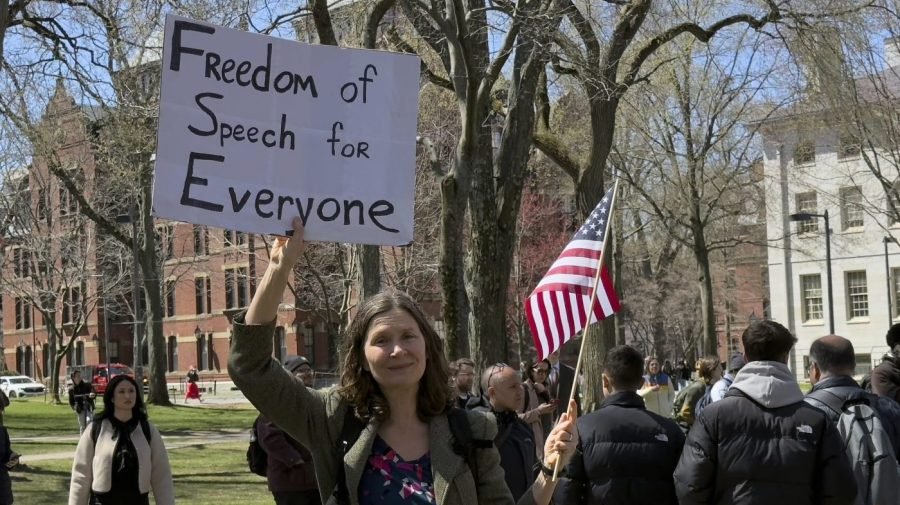
President Trump is pulling out all the stops in his battle against Harvard University, effectively terminating the federal government’s relationship with the country’s oldest and richest university.
Trump has ordered all federal agencies to end their contracts with Harvard, a move that comes after the school filed two lawsuits against his administration, one over funding and the second regarding its ability to enroll international students.
The showdown keeps expanding, and neither side is showing any sign of giving ground.
The fight with Harvard has escalated to a point where some are asking what more Trump can take away from the university.
“It has been a real onslaught of moves from the Trump administration to attack Harvard’s finances and sustainability over the past couple of weeks, and it’s been a real throw spaghetti at the wall situation,” said Katharine Meyer, a fellow in the Brown Center on Education Policy at the Brookings Institution.
Harvard’s lawsuit over nearly $3 billion in funding cuts has a hearing set for July, but another $3 billion could be on the way after a Memorial Day threat from Trump.
“I am considering taking Three Billion Dollars of Grant Money away from a very antisemitic Harvard, and giving it to TRADE SCHOOLS all across our land,” he wrote in a post on Truth Social. “What a great investment that would be for the USA, and so badly needed!!!”
And that doesn’t include how much Harvard may lose after the General Services Administration sent a letter to all federal agencies to terminate or move contracts away from Harvard on the basis the university is allegedly engaged in “race discrimination.”
“I think the administration knows that a lot of these efforts are legally dubious. … It is the very confusion and uncertainty that these attacks bring that is the real impact,” Meyers said.
“The administration is trying to have the uncertainty and the confusion and the constant need for Harvard or other institutions to bring suits against actions, is the goal itself, to sort of sow chaos in a particular institution or in higher education as a whole, that really prevents them from doing their other normal day-to-day work,” she added.
Trump has also called for Harvard to lose its tax-exempt status, and advocates fear he could target its student financial aid as well.
Experts say the university will likely ultimately prevail in court, but by then, the damage could be done.
“The investigation is the punishment, to spend money and spend time fighting federal actions, and the more time Harvard spends in the headlines, on the defensive, the worst for Harvard, whatever the specifics are the case,” said Rick Hess, senior fellow and the director of education policy studies at the American Enterprise Institute.
Meanwhile, the school’s world-renowned research community is taking serious hits.
A graduate student at Harvard Medical School working on cancer research told The Hill the university has provided temporary funding for her project to continue, but the future is unclear.
“My feeling is that no one at Harvard really knows fully what to expect, and things change from day to day,” the student said, adding that Harvard’s administration and students often are finding out new Trump moves against the university at the same time through the news.
“I think a lot of people are rethinking staying in the United States and are considering relocating to particularly European countries for the futures in their careers. … I know a lot of my colleagues are considering alternatives, and I also know that for the incoming students this year, a lot of students, international students, ended up declining offers at Harvard,” the student added.
The Hill has reached out to Harvard for comment.
The ripple effect could go well past Harvard and the Trump administration as all higher education and the research community could suffer for years to come.
Longitudinal studies have been canceled, and researchers are switching fields altogether to avoid chaos.
“Let’s say we get back to a situation, an environment, where university research is supported again. … Once bitten, twice shy? Will researchers in universities fear that? Maybe the federal government is going to back research once again. But who knows what happens if a new administration comes in,” said Raymond Brescia, associate dean for research and intellectual life at Albany Law School.
“I think that there’s likely to be institutions and researchers who might think twice before undertaking significant research projects if they fear that they could get something started, and then have the rug pulled out from under them in a few years, if the … university somehow falls out of favor with the government,” Brescia added.


